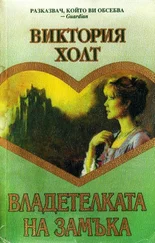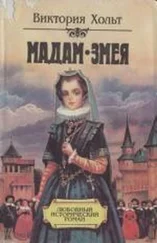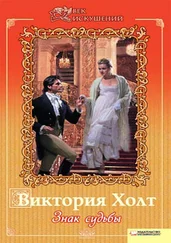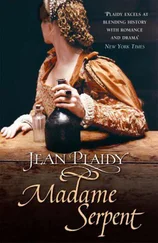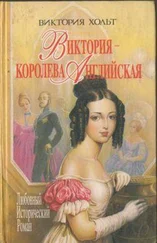Jean Plaidy
King's Confidante
I WISHgratefully to acknowledge the guidance I have received from the undermentioned books:
History of England , William Hickman Smith Aubrey
Life of Sir Thomas More , William Roper
Thomas More , R. W Chambers
Life of Wolsey , Cavendish
Utopia , Sir Thomas More
A Dialogue of Comfort , Sir Thomas More
The Latin Epigrams of Thomas More , edited with Translations and Notes by Leicester Bradner and Charles Arthur Lynch
England in Tudor Times , L. F. Salzman, M.A., F.S.A.
British History , John Wade
Lives of the Queens of England , Agnes Strickland
Old and New London , Walter Thornbury
The Divorce of Catherine of Aragon , James Anthony Froude
Wolsey (Great Lives), Ashley Sampson
Early Tudor Drama , A. W Reed, M.A., D.Lit.
J.P.
AND WHO IS THIS MAN WHO DARES OPPOSE US?” DEMANDED the King. “Who is this Thomas More? Eh? Answer me that.”
The King was angry. He sat very straight in the royal chair, one slender hand lying on the purple velvet which covered the table, the other stroking the ermine which covered his mantle. He was battling to subdue his rage, to preserve his habitual calm; for he was a shrewd man and his life had taught him that unheated words were more effective than the sword.
He looked from one to the other of the two men who sat with him at the velvet-covered table where lay the documents which had absorbed their attention until the entrance of the man Tyler.
“You, Empson! You, Dudley! Tell me this: Who is this man More?”
“Methinks I have heard his name, Your Grace,” said Sir Edmund Dudley. “But I know him not.”
“We should be more careful whom we allow to be elected as our London burgesses.”
“Indeed yes, Your Grace,” agreed Sir Richard Empson.
The King's fury was getting the better of him. He was glaring distastefully at Master Tyler, that gentleman of the Privy Chamber who had brought the news; and it was not this king's habit to blame men for the news they brought. Tyler trembled; he was fervently wishing that he had allowed someone else to acquaint the King with the news that his Parliament—owing to the pithily-worded arguments of one of the youngest burgesses—had refused to grant him the sum of money for which he had asked.
There was one other in the room of the palace of Richmond, and he—a boy of thirteen—was staring idly out of the window watching a barge on the river, wishing he were the gallant who accompanied the fair young lady as they went gaily on to Hampton; he could see them well, for his eyesight was keen. The sun was shining on the water, which was almost the same color as the dress of the young lady. This Prince was already fond of ladies, and they were fond of him. Although young as yet, he was already as tall as many men and showed promise of shooting up to great stature. His skin was fair and his hair had a tinge of red in it so that it shone like the gold ornaments on his clothes.
Now he had forgotten the young lady; he wished to be playing tennis, beating any who challenged him, listening to the compliments they paid, pretending not to hear, while they pretended not to know he listened. For two years he had been aware of such adulation; and how could he, who so loved adulation, feel really sorry that his brother had died? He had loved Arthur; he had admired him as his elder brother; but it was as though he had lost a coarse frieze garment and, because of his loss, found himself the possessor of a doublet of velvet and cloth of gold.
He was conscious that he was a prince who would one day be a king.
And when I am, he told himself, I shall not sit in council with such mumping oafs as Master Dudley and Master Empson. I shall not worry my head with the hoarding of money, but the spending of it. I shall have merry men about me—fat spenders, not lean misers.
“And you, my son,” he heard his father say, “what of you? Have you heard aught of this fellow More?”
The boy rose and came to the table to stand in homage before the King.
My son! pondered the King. What a king he will make! What resemblance he bears to the hated House of York! I see his grandfather, Edward of York, in that proud carriage.
And the boy's father was faintly worried, for he remembered Edward die Fourth in his latter years when the tertian fever had laid hold of him and, like a mischievous scribe, had added a smudge here, a line there, until an ugly mask had made a palimpsest of his once beautiful face. But not only the fever had done this; it had been aided by the life he led: too much good food, too much good wine; too many women—anyhow, anywhere, from serving wenches to duchesses. Such debauchery took toll of a man.
I must speak with this son of mine, thought the King. I must set his feet on the rightful path. I must teach him how to save money and keep it. Money is Power, and Power is a king's heritage; and if that king be a Tudor king—a young tree, the prey of sly and subtle pests, in danger of being overcome by older shrubs who claimed that young tree's territory—then that Tudor king must have wealth, for wealth buys soldiers and arms to support him; wealth buys security.
He was not displeased with his own acquisitions; but when he had filled one coffer, he was eager to fill another. Everything he touched did not turn to gold as easily as he would wish. The touch of Midas was in his shrewd brain, not in his fingers. Ah well, he would then thank God for that shrewd brain. War drained the coffers of other kings; it filled those of Henry Tudor. He used war; he did not allow war to use him. He could draw money from the people by telling them that they must do battle with their enemies the French and the Scots; and the people were ready to pay, for they believed that the bread of righteous anger thrown upon the waters of conquest would yield rich booty. But Henry the Seventh knew that war took all the treasure that was offered, demanded more, and in exchange for so much riches gave pestilence, hunger and poverty. So the King, having collected his money, would make a speedy peace; and that which was intended to bring war to the enemies of England, brought wealth to England's king.
He was a king who had suffered from many insurrections; insecure, since he was a bastard branch of the royal tree, grafted on by an indiscreet widowed queen, there had been many to oppose him. Yet each year saw him more firmly seated on the throne. He did not demand the blood of those who planned to destroy him: he only asked for their lands and goods. Thus he grew richer every year.
He now looked at the boy who stood before him, not as a father might look at his son, but as a king regarding his successor.
Last year, the Queen had died in childbed, and the King was eager to get himself a new wife. This was the only son left to him; and the death of Arthur, so recently a bridegroom, had been a bitter blow. The loss of the Queen was not so important; there were many women in the world—royal women—who would not hesitate to become the wife of the King of England; and it was pleasurable to contemplate that wives brought dowries.
Secretly he was not sorry to see the end of Queen Elizabeth. She had been a good, meek wife; she had given him several children; but she was of the House of York, and reasonable as he was, he had found that hard to forget.
“Well, my son?”
“I have met the man More, Your Grace.”
“Then tell me what you know of him.”
“He is a lawyer, Sire, and it was when I was at Eltham with my sisters that I saw him. He came with Mountjoy and the scholar, Erasmus; for Erasmus was visiting Mountjoy whom he had once tutored.”
Читать дальше

